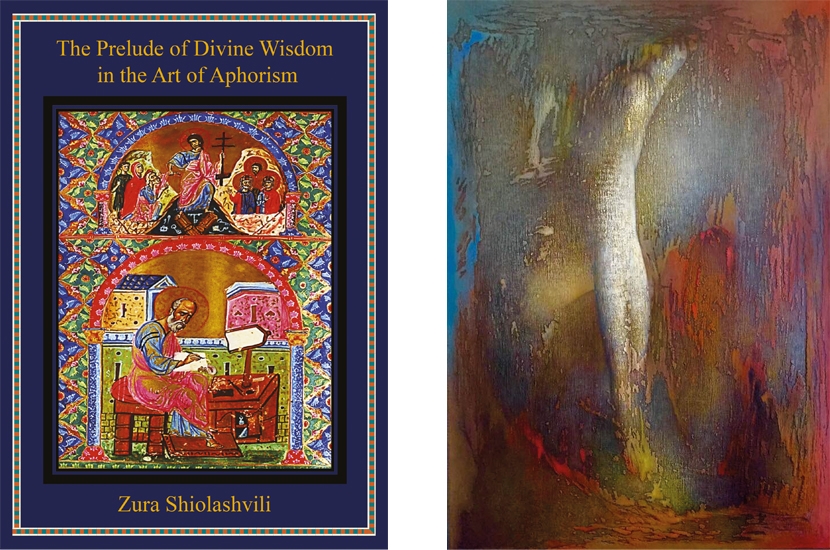The Georgian philosopher Zura Shiolashvili has fashioned for us a magnificent and beautiful book, The Prelude of Divine Wisdom in the Art of Aphorism. It’s a powerful tour de force in the realm of religious philosophy and spiritual aesthetics, as the author brilliantly dismantles and overturns Friedrich Nietzsche’s often-celebrated arguments against Christianity — and especially against the traditional Christian understanding of beauty and morality — using Nietzsche’s own language and thought processes against him. Hence, in one of his aphorisms directed against Nietzsche’s glorification of sensual/animal pleasure, he writes:
‘A human being separating himself from the beauty of the soul involuntarily becomes swine-like’ (p. 82).
He also writes, very poignantly:
‘So, in my genuine perception and compassion — although in Nietzsche’s animal ethic, compassion was one of the greatest disgraces for a man, as a real man in his spiritual battle must overcome his misfortune through his self-mastery alone — all I can do philosophically is situate Nietzsche’s reputation as somewhere between a blind man and a clever idiot in our cruel world’ (p. 43).
‘No whore can aspire to the betrayal which the slave to power achieves’ – Zura Shiolashvili
Along the way, Shiolashvili also demolishes in just a few words the atheistic arguments of Richard Dawkins, as well as offering pearls of higher Christian wisdom over and against some of the thinking of other such ‘giants’ admired by modernity as Hume, Kant, Schopenhauer, Freud, and Jung. One of the most appealing aspects of the book is the author’s extensive use of aphorisms — very short, pithy statements conveying great depth of meaning. He presents more than 300 of his own aphorisms, such as this one:
‘A drop of love is able to cover a sea of sadness’ (p. 95).
Many of his aphorisms he then comments upon, often making direct refutations of quotations he provides from Nietzsche’s various works, and from works of the other philosophers and psychologists mentioned above.
The author’s prolific use of aphorisms, and the splendid, provocative artwork that adorns the book, remind me of the books of Kahlil Gibran. Both Shiolashvili and Gibran explore the ageless themes of love and beauty, spiritual darkness and light, death and life, suffering and bliss, meaning and meaninglessness. But I would suggest that because he writes as a Christian philosopher, Shiolashvili plumbs the depths of these themes — and especially the eternality of spiritual beauty — more deeply than does Gibran, whose work was not particularly Christ-centered.
This book is truly a treasure-trove of wisdom to uplift the soul, bringing greater meaning to our lives — even as it helps us understand with compassion the spiritual starvation accompanying modern man’s efforts to live by his self-will alone, separating from God. May this book be a great blessing for many. As the author says in the last aphorism in the book, the meaning of which is mingled with the eternal Kingdom of God:
‘Roses plucked from heaven never wither’ (p. 98).
This article is free to read
To unlock more articles, subscribe to get 3 months of unlimited access for just $5






Comments
Join the debate for just £1 a month
Be part of the conversation with other Spectator readers by getting your first three months for £3.
UNLOCK ACCESS Just £1 a monthAlready a subscriber? Log in